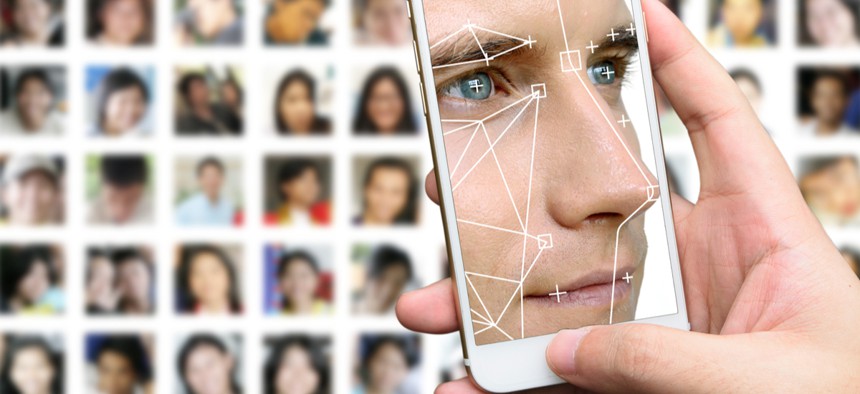Senator Demands Answers on Facial Recognition Tool that Could Pose ‘Chilling’ Privacy Risks

Zapp2Photo/Shutterstock.com
Sen. Ed Markey said he’s particularly troubled about law enforcement officials’ access to the app.
A New York Times investigation into a facial recognition startup that’s amassed billions of personally identifying photos and is pitching and sharing its database with hundreds of law enforcement agencies sparked concerns about the future of privacy and anonymity in America this week. One lawmaker wants to know more.
In a letter to Clearview AI CEO Hoan Ton-That Thursday, Sen. Ed Markey, D-Mass, requested new information about the partnerships and practices of the company at the heart of the matter.
“Clearview’s product appears to pose particularly chilling privacy risks, and I am deeply concerned that it is capable of fundamentally dismantling Americans’ expectation that they can move, assemble, or simply appear in public without being identified,” Markey wrote.
According to Kashmir Hill’s Times report, the app enables any user to take a photo of any person’s face, upload it and then subsequently view public pictures of that same person and links to where they appear. Clearview (which Hill notes was also founded by Richard Schwartz, a former aide to Rudy Giuliani and is backed financially by venture capitalist Peter Thiel) has also accumulated a database of millions of images that the company “scraped” from Facebook, YouTube, and millions of other sites. The tool essentially could enable someone to use the app on a stranger on the street and rapidly learn personal information like their name, address or others that they know. The app was accessed by more than 600 law enforcement agencies in the past year, who told Hill they used it for support in investigating cases that involve shoplifting, identity theft, credit card fraud, murder and child sexual exploitation.
The senator said he was “troubled” over the potential that law enforcement departments across the nation could inadvertently use Clearview “at the expense of our basic privacy rights.” He also warned that the app could be exploited by criminals or foreign adversaries to harm innocent people.
“The ways in which this technology could be weaponized are vast and disturbing,” Markey wrote.
In a series of 14 questions, the senator asked for more information about the company’s security protections and practices, where children fall under the app’s purview, accuracy and bias assessments of its product, and whether there’s a process for individuals to have their data removed from the app upon request. He also asked for specific details about the law enforcement departments, intelligence agencies and other entities that Clearview is presently working directly with.
The senator asked for a response by Feb. 12.
Since the release of Hill’s report, the app is also facing scrutiny from a range of others. Social media giant Twitter for example recently sent a cease and desist letter, demanding that the company delete any data pulled from its own users’ public profiles, and Clearview is also in the midst of a potential class-action lawsuit in Illinois regarding its collection practices.






